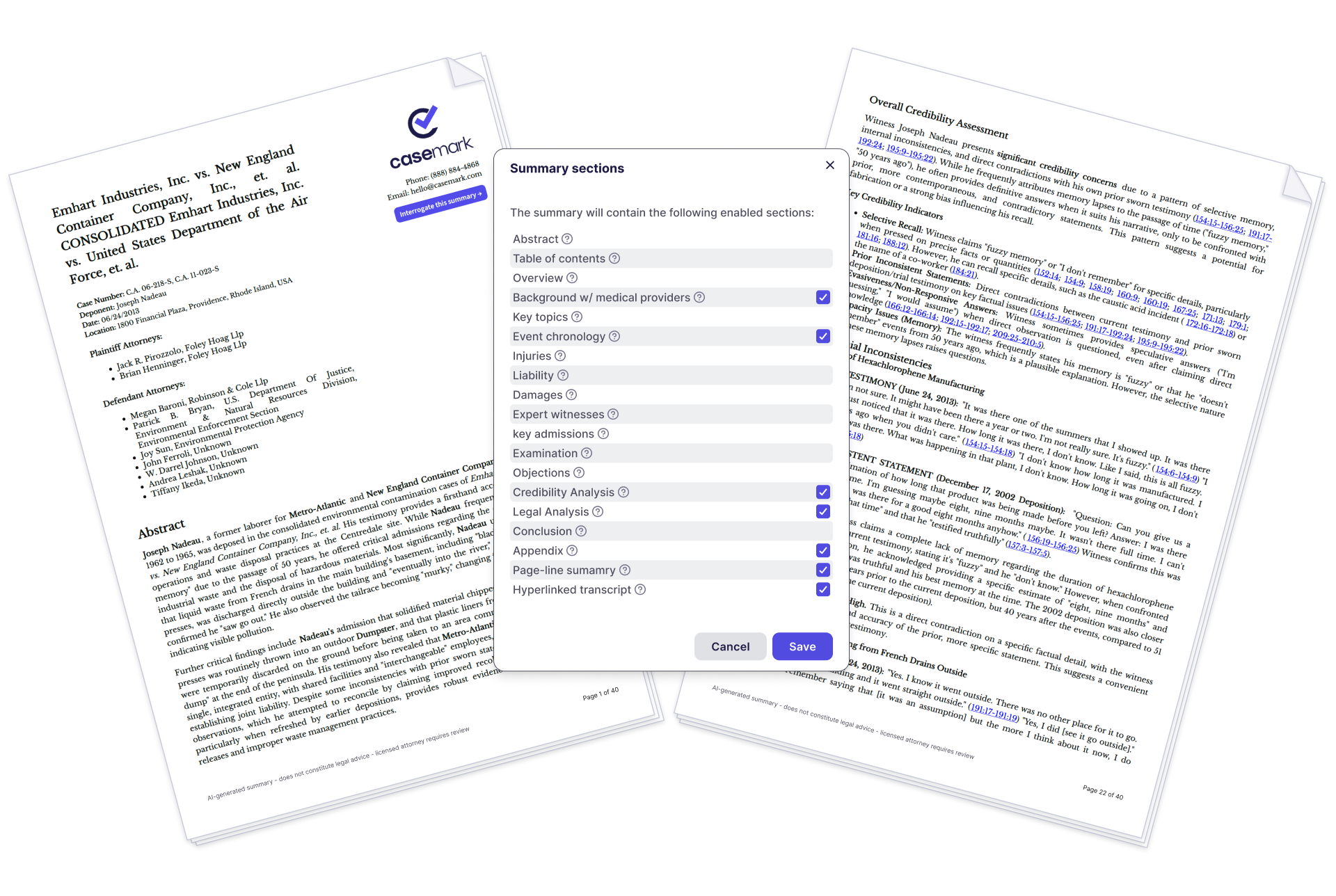













Effortless Deposition Summaries
AI-powered legal clarity
Introducing Deposition Analysis
Combines strategic legal analysis, narrative testimony, and page-line references in one customizable document with credibility analysis, key admissions, and event chronologies.

Deposition Summaries
Elevate your case strategy with CaseMark's adept deposition summarization tools. Our platform condenses intricate deposition, trial and hearing transcripts spotlighting key testimonies and evidence, allowing attorneys to focus on what truly matters.
Deposition summary features
Summaries in Minutes
Multi-Volume Support
Hyperlinked Transcripts
Multiple Formats
Privacy & Security
Chat Interrogation
Depositions Your Way
A deposition summary or abstract is a summarized version of a deposition transcript. CaseMark offers a variety of AI-powered deposition summary tools for different needs. If we do not have the format you need, please contact us. We also offer customized summaries tailored to your exact needs and format.
Page Line Deposition Summaries
A page line deposition summary identifies important points in the deposition by the page and line(s). This common deposition summary format is useful for attorneys who want to scan the summary or compare one summary to another. This format uses hyperlinks for quick reference to the exact location of specific testimony in the original transcript.
Narrative Deposition Summaries
Narrative summaries convert deposition testimony and relevant facts into a narrative or story-like format. It includes the most important points and testimony in a manner that is easier to read and understand, often used for providing a concise summary to clients, insurance adjustors or team members who may not have time for an in-depth document review.
Deposition Analysis Summary
Our most powerful deposition summary, combining strategic legal analysis, narrative testimony, and page-line references in one customizable document. Choose the sections you need: credibility analysis, key admissions, event chronologies, and more. Your preferences save automatically for future summaries.
How are Deposition Summary Formats Different?
Page Line Summaries
Provide a detailed breakdown of testimony by referencing specific pages and lines from the transcript.
Best for:
- Precise cross-referencing
- Pinpointing specific details
- Quick reference to exact testimony
Narrative Summaries
Present testimony as a cohesive story, focusing on the overall picture and key points.
Best for:
- Easier client communication
- Comprehensive case overview
- Understanding witness testimony flow
Deposition Analysis Summary
Combines strategic legal analysis, narrative testimony, and page-line references in one customizable document with credibility analysis, key admissions, and event chronologies.
Best for:
- Comprehensive strategic analysis
- Cases requiring multiple analysis types
- Complex deposition review
Enterprise deposition solutions
Deposition summary use cases
Leverage deposition summaries throughout your litigation workflow.
Trial Preparation
Discovery Strategy
Settlement Negotiations
Expert Witness Prep
Case Review & Analysis
Multi-Witness Comparison
Ready to Transform Your Deposition Review?
Start creating deposition summaries in minutes. Your first summary is free!